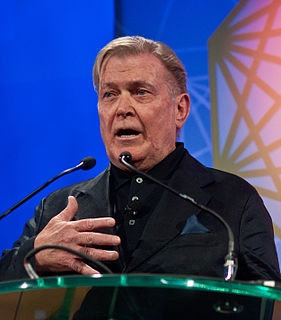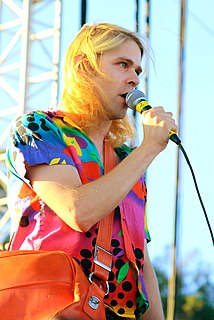A Quote by Rick Moranis
I am wary of sequels. I understand them from the studio's point of view, but the audience doesn't want more, they want better, and I thought the second 'Ghostbusters' was not very effective, it did not really work, so there's no reason to believe a third would. I'm more interested in new things.
Related Quotes
We hope that there will be nothing that conflicts with anybody's religion or faith. We would never say a person's religion is not effective. We say, 'Would you be interested in something more effective?' We always put things in an optimistic, progressive perspective. 'Do you want to make your prayers more effective? Not that they are not effective, but do you want to help them become more effective?'
I see more and more that my work goes infinitely better when I am properly fed, and the paints are there, and the studio and all that... I wish I could manage to make you really understand that when you give money to artists, you are yourself doing an artist's work, and that I only want my pictures to be of such a quality that you will not be too dissatisfied with your work.
My mom didn't run for mayor until she was 65 years old - it was like a second and third career.... The way I've always thought about it is that I don't believe you run for office because you want a job. I believe if you run for office, it's because you have a vision for change. And if I ever came to that point, that's what would lead [me to run]. And right now I'm happily in a position where I believe I can work to deliver impact and work for change.
[T]he more clamour we make about 'the women's point of view', the more we rub it into people that the women's point of view is different, and frankly I do not think it is -- at least in my job. The line I always want to take is, that there is the 'point of view' of the reasonably enlightened human brain, and that this is the aspect of the matter which I am best fitted to uphold.
Now, we don't really believe these things - intellectually we know better - but we believe them viscerally, and live by them, and they cause us to prioritize our own needs over the needs of others, even though what we really want, in our hearts, is to be less selfish, more aware of what's actually happening in the present moment, more open, and more loving.
The more new thinking I did, the more successful it seemed to me that I could become. When magazines are really working, and when websites are really working, they're doing new things all the time, and discovering new writers to do stories, different ways to package stories. I was always very aware that I was very lucky to be doing what I was doing, because I would get up in the morning, and go to work, and the days would fly by.
Relationships help you learn more about what you want. If one doesn't work out, you just kind of look at it and go, Okay, well, this is what I did like and this is what I didn't like, and this is what I did wrong, and maybe I need to be more like this. And so you learn things, and that's why you grow. And you bring all the stuff that you've changed about yourself to a new relationship until you finally find that person you really, really want.
You get to a point in life where it suddenly occurs to you that you don't need all the things you once thought you did--that it's really, well, convoluted. My life feels overblown sometimes, and I don't want it to be. I want it to be streamlined. So I'm living a much more unscripted life now than I have in a long time.
In my view, philosophers have shown a great deal more respect for the first-person point of view than it deserves. There's a lot of empirical work on the various psychological mechanisms by way of which the first-person point of view is produced, and, when we understand this, I believe, we can stop romanticising and mythologising the first-person perspective.




































